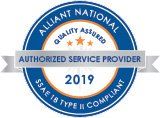Five things to know about Title Insurance
This is a subtitle for your new post

1. Title Insurance helps protect your ownership rights to your home.
Through the search and examination process, defects, liens, and encumbrances in the chain of title that could adversely affect your ownership interests in the property can be discovered. And, while it is required by a lender, it shouldn’t be confused with homeowner’s insurance, which is also usually required by a lender during closing. While homeowner’s policies will protect against an accident occurring in the future, such as a fire, title insurance policies protect against events that happened in the past that may have an impact on who owns the land, such as an unreleased mortgage, fraud or forgery (identity theft).
2. There are two different policies of title insurance involved in a home purchase.
If the buyer is securing a mortgage to complete the purchase, the lender will require a type of title insurance policy designed to protect only the lender’s interest in the property. This is called a loan policy. The home purchaser should also purchase an owner’s policy of title insurance, which protects their interest in the property for as long as they own it. When both policies are purchased the buyer receives a simultaneous issue rate, which reduces the cost of the two policies.
3. Title insurance professionals may be able to take curative action necessary to protect your interest in the land.
When a title insurance policy is ordered, title professionals together with real estate attorneys utilize public property records to identify and remedy, if possible, issues from the past that could affect the ownership of the property. Your owner’s title insurance policy protects you against defects, liens, and encumbrances not disclosed by the title examination and reported in the policy.
4. You only pay for an owner’s policy of title insurance once.
Paid at closing, an owner’s title insurance premium is a one-time fee. The coverage included in the policy, however, lasts as long as the insured parties (or their heirs) hold an interest in the property. By contrast, loan policies are no longer in effect once the loan is paid off or refinanced. If the property is refinanced in the future, the lender (even the same lender that held the previous loan) will require a new loan policy to protect their interests in the new loan.
5. You have the right to select the title company of your choice.
The Real Estate Settlement Procedures Act and North Carolina Law protect homebuyers’ rights to select their providers of various settlement services. This includes title insurance companies. Homebuyers should know they are free to work with the title company that they are most comfortable with. When a title policy has been issued on Identical Land within fifteen (15) years, the purchaser is entitled to a re-issue rate, which may reduce the premium by as much as 50%. (Note: The previous policy or HUD-1 must be provided in order to provide the insured with a reissue rate.)

Articles







